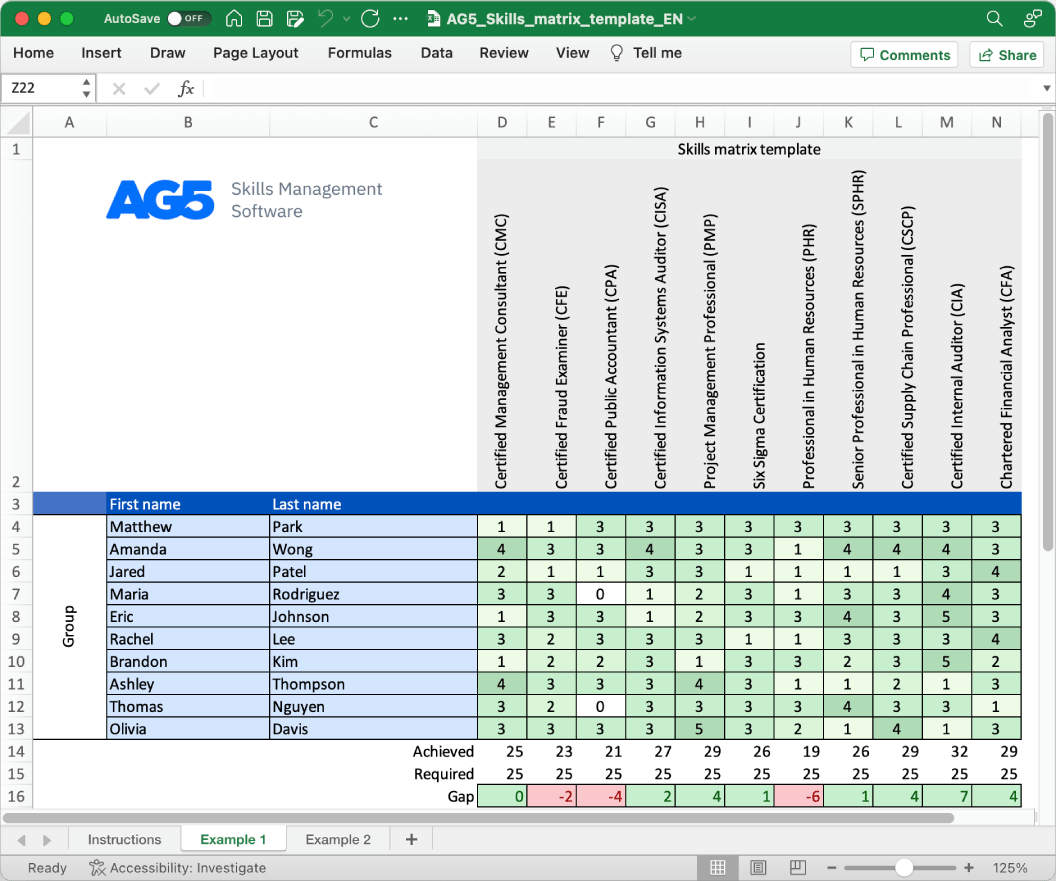Design verification skills matrix template
A skills matrix template is a tool teams can use to assess their design verification skills and knowledge
Download your free template here

Overview Copied
With our free design verification skills matrix template, you will receive a clear overview of the skills that are present in your organization, as well as those that are missing. Using this information, you can develop and implement a plan to ensure that your employees’ skills are up to date, comprehensive, compliant, and ready for the future.
- Certified Verification Professional (CVP)
- Certified Design Verification Engineer (CDVE)
- Certified Verification Engineer (CVE)
- Certified Hardware Verification Engineer (CHVE)
- Certified ASIC Verification Engineer (CAVE)
- Certified FPGA Verification Engineer (CFVE)
- Certified System Verification Engineer (CSVE)
- Certified Software Verification Professional (CSVP)
- Certified Functional Safety Verification Professional (CFSVP)
- Certified Verification Manager (CVM)
- Certified Verification Expert (CVE)
- Certified Verification Specialist (CVS)
- Certified Verification Consultant (CVC)
- Certified Verification Analyst (CVA)
- Certified Verification Leader (CVL)
- Certified Verification Methodology Engineer (CVME)
- Certified Verification Instructor (CVI)
- Certified Verification Mentor (CVM)
- Certified Verification Auditor (CVAU)
- Certified Verification Coach (CVC)
Benefits Copied
Skills management software is important in design verification by tracking and managing the skills of professionals involved in verifying the design of products or systems. It ensures that individuals possess technical knowledge, problem-solving skills, and proficiency in using diagnostic tools for effective design verification.
Author Copied
Revisions Copied
Tired of managing skills in Excel?
Say goodbye to Excel matrices. Start using AG5’s plug and play skill matrix software.
Recognized by G2 for Excellence in Skills Management

